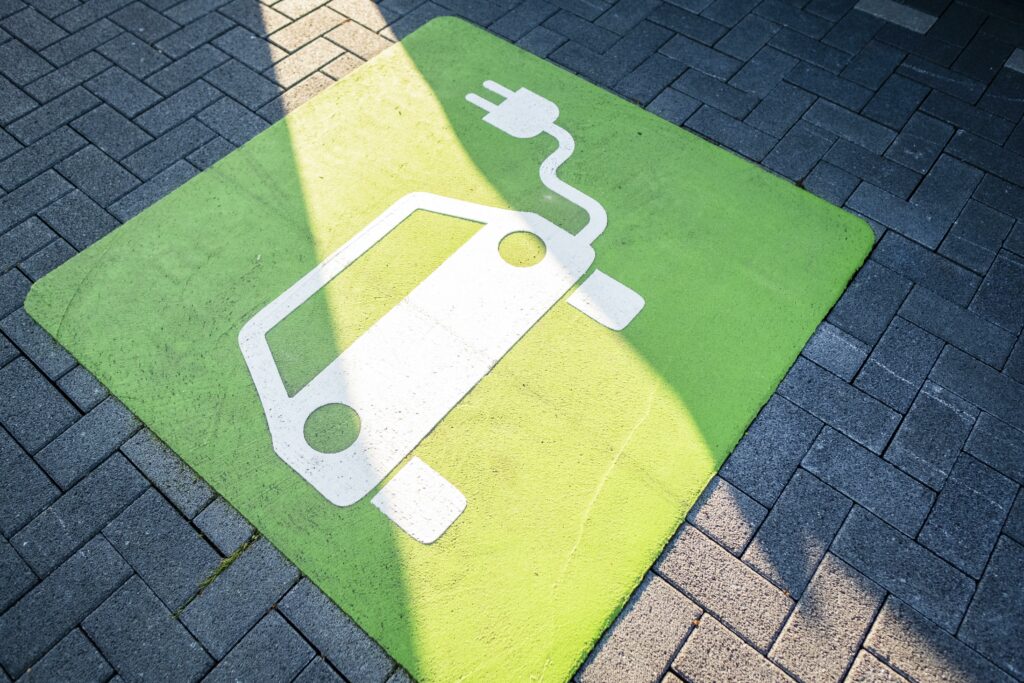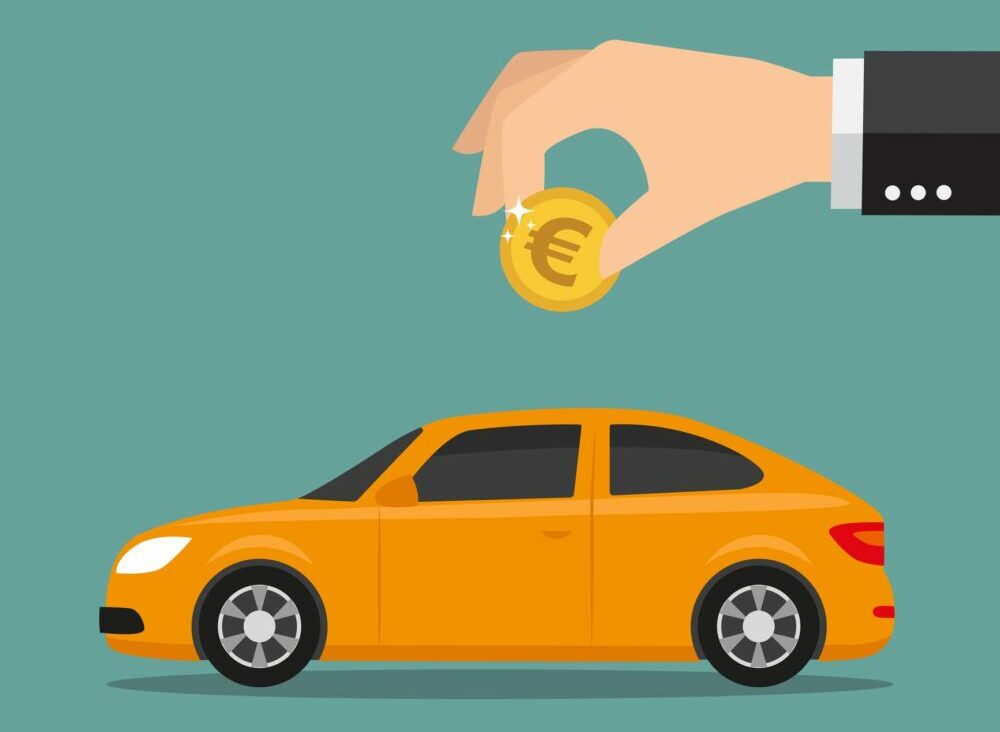German EV numbers continue their upward trend in July
04 September 2023

Although July is often a slower month in the German automotive market, new electric vehicle (EV) registrations continued to impress. José Pontes, data director at EV-volumes.com, examines the numbers.
The overall German automotive market had another positive month in July, growing 18% year on year. Battery-electric vehicles (BEVs) were the highlight of the monthly figures, with an impressive 69% increase in registrations, their highest growth rate this year.
This equated to 48,682 units, meaning BEVs took 20% of the overall market. What makes this result even more impressive is that it took place in the middle of the summer holiday season. This indicates the country could be heading for a potentially record-breaking September.
However, plug-in hybrids (PHEVs) were down by 37% in the month. The technology is still suffering from the end of federal incentives in Germany. In July, there were 14,345 PHEV registrations, making up just 5.9% of the total market, and approximately half of what they recorded a year ago.
The poor performance of PHEVs is visible in the breakdown of total electric vehicle (EV) deliveries. BEVs represented 77% of all plug-in sales in July, 3% above this year’s average and a large improvement on the 55% share of a year ago.
July’s 26% EV market share brought the year-to-date score to 22%, with 16% being held by BEVs. With this likely to improve across the rest of the year, a market share between 25% and 30% is very possible by the end of December.
Volkswagen leads in July
The Volkswagen (VW) ID.4 benefitted from Tesla’s off-peak month, taking the top spot on the EV best-seller table in July with 2,941 deliveries. This is the first time since April that ID.3 led the monthly figures.
The Fiat 500e took second with 2,487 registrations, while Tesla, which is traditionally slower at the beginning of a quarter, saw its Model Y in third with 2,067 units taking to Germany’s roads.
Highlighting VW Group’s current EV sales push across all its brands in Germany, the company placed five models in the top 10. The ninth-place Cupra Born recorded a new best for 2023, with 1,743 registrations.
The Dacia Spring produced a surprise by surging into sixth, with 1,818 registrations, its best result so far this year. Hyundai’s Ioniq 5 gained 1,138 registrations and the Kona EV 1,423. With a next-generation Kona on the way, these figures are even more impressive.
However, the highlight in July was the Mercedes-Benz EQA, which reached a record 1,963 units. With the model having been on sale since the second half of 2020, this shows how the brand takes its time when it comes to ramping up both interest and registrations.
There were only two PHEV models in the top 20 during July, with the Mercedes-Benz C-Class PHEV showing up in 15th (with 1,177 registrations). The other was the company-car-friendly Ford Kuga PHEV, which ended the month in 12th with 1,236 registrations, a new 2023 best. Another car setting a record for the highest registrations so far this year was the Polestar 2, which ended the month in 19th position, thanks to a total of 1,052 registrations.
Outside the top 20, the Jeep Avenger experienced its first volume month in July, ending with 902 deliveries. This put the BEV-based off-road vehicle just six units behind the Renault Megane EV. It will be interesting to see where the car places in the coming months, and it seems the Stellantis brand has produced a model that has top-20 potential.
Elsewhere in the Stellantis Group, Opel had a good month, with solid performances from the Corsa EV (759 units) and Mokka EV (692 units) while the BEV version of the Astra (342 units) began reaching dealerships. Overall, EV versions of the model had a record performance in Germany of 561 units, including 219 PHEVs.
Meanwhile, BYD’s Atto 3 had its first volume month in Germany with 367 units delivered. Hyundai’s Ioniq 6 also had a record month, with 695 registrations. The Renault Twingo EV (616 registrations), VW ID.Buzz (536 registrations), and Peugeot e-2008 EV (520 registrations) all had year-best performances.
Looking at full-size models, the BMW i5 emerged in July, with a significant 252 registrations. This may mean that the leaders, the Audi Q8 e-Tron (597 registrations) and Porsche Taycan (569 registrations), could face stronger competition as the year progresses.
Tesla still leads the way in 2023
In the 2023 table, the Tesla Model Y sits well above its competition across the first seven months of the year, with a 13,000-unit advantage over the second-placed VW ID.4. This is a disruptive performance for a foreign model in Germany, not only in the EV category but also in the mainstream market.
Yet VW Group is also performing very well domestically, placing five models (the VW ID.3, VW ID.4, Audi Q4 e-Tron, and Skoda Enyaq) in the top six positions, all of them experiencing surging sales. With the Cupra Born up to ninth in July, there are now five MEB-based platform models in the top 10. Therefore, while Tesla is making the most of its leading model, the German OEM is profiting from a strong overall line-up of options for the market.
Mercedes-Benz is also playing its part in the year-to-date chart. The EQA jumped four positions to eighth, making the compact crossover the brand’s best-selling model in the table, displacing the Mercedes-Benz C-Class PHEV, and becoming the first BEV model from the carmaker to beat its PHEV siblings.
BMW is also seeing improvements, with the appealing iX1 starting to capture the imagination of drivers, the model took 15th place. Still some way behind the Mercedes-Benz EQA, the model is at least helping the Bavarian manufacturer push forward in the EV market, while the i4 continues to languish outside the top 20. The Dacia Spring also made an appearance in the year-to-date table, thanks to a very good July.
The decline in the PHEV market was further highlighted in the figures across the first seven months of 2023. While at the same point last year, there were six models representing the fuel type, there were only two between January and July. This is also in danger of dropping, with BEV contenders massing just behind the 19th-place Mercedes-Benz GLC.
Domestic brands surge ahead
In the brand rankings, VW saw its EV market share drop to 12.8%, however, the marque still managed to gain ground over second place, as Tesla’s off-peak month saw it fall to third position, with an 11.1% market share.
This allowed Mercedes-Benz to leap into second, with an 11.7% share achieved thanks to its balance between BEV and PHEV sales. The slender lead over Tesla will likely be reversed later in the year, as the US manufacturer’s end-of-quarter registrations will help its figures rise again.
BMW (7.5%) stayed in fourth, benefitting from a significant drop from fifth-placed Audi, which saw a 7.1% share in July, down from 7.4% in June. This meant domestic brands took four of the top five places, highlighting the strength of the industry.
Looking at the rankings by group, with brands brought together under their parent companies, VW Group has its domestic market well in hand with a 28.8% share. However, this does represent a marginal drop from 29.2%. The manufacturer was followed at a distance by Mercedes-Benz (14.3%, down from 14.7%) and Tesla (11.1%).
Stellantis came fourth with 10.9% share up from 10.4%, thanks to the good performances of Jeep and Opel. BMW Group came fifth with a 9.6% share. Below them, sixth-placed Hyundai–Kia (7.7%, up from 7.3%) is the only OEM close enough to hope for a top-five spot in the near future.



